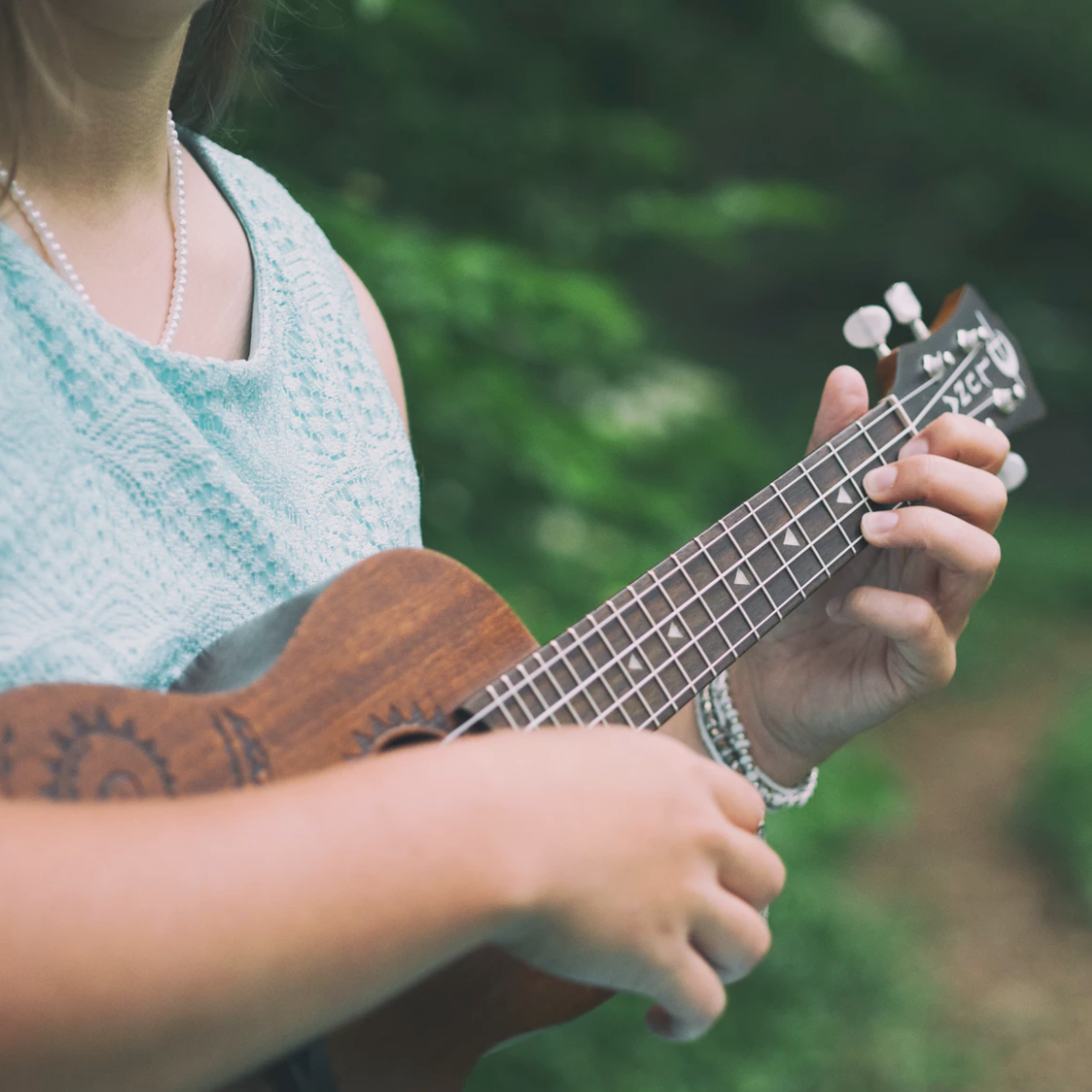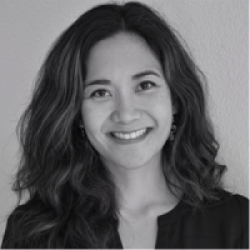
I’m a sucker for a good rhetorical question. It might be because I enjoy philosophical topics and discussions, or because I just don’t like being wrong about one single answer. I actually think it has more to do with the fact that there can be many different answers to one question in the same way that we are all different human beings that can exist in this one world.
This is how I approach PBL in my Concert Choir, String Orchestra, and Ukulele classes. In the past, I’ve conducted these classes as traditional music ensembles, leaning towards the teacher-centered approach with musicians following the musical direction and objectives of the conductor. However after being trained in PBL, I have discovered a way to empower the students to take ownership of their learning that both motivates and excites them about making music by themselves and with others.
Below are some examples of driving questions, lessons, and activities I have done this past school year, which have allowed my own music students to delve into the deeper, soulful learning of the arts. These projects invoked the rich landscape of how the process of music as organized sound can help connect us to ourselves and each other.
Class: 7th-8th grade Concert Choir
Driving Question: “How does music move you?”
Lesson Ideas: Students began with a writing prompt describing how music moved them, made them feel, how it helps them and society. We then watched the 2014 documentary film “Alive Inside” about the effects of music on Alzheimer’s and dementia care patients. We took a field trip to a local Alzheimer’s and dementia care home to interview their residents in search of favorite songs from their generation. Based on the interviews, the students developed and practiced the chosen choral repertoire, which was then performed for the residents.
Class: 6th-7th grade Ukulele
Driving Question: “What’s your song?”
Lesson Ideas: In the process of learning basic ukulele playing technique, students were given the opportunity to choose a favorite song to perform for their final playing test of the semester. They listened to, practiced, and analyzed different songs in search of musical elements to enhance their own performance. They also analyzed their song, and researched information to identify its historical and cultural background to better understand the music in its full context.
Class: 4th-8th grade String Orchestra
Driving Question: “What does musical growth look like?”
Lesson Ideas: Students began with a writing prompt describing their past, present, and future experience playing their instrument in the ensemble. Students then paired with another string student from an orchestra in a different city. With this orchestra pen pal, the students wrote letters to each other by means of traditional postage mail, sharing their successes and struggles in learning their instrument. Students in both orchestras learned the same piece and performed it together via Skype.
By implementing these PBL projects in my classes, I noticed that students were more thoughtful and reflective in their music-making because they sensed the value of their performance in both the music and the experience of others. They seemed more engaged with their ensemble peers, thereby improving musical delivery and group empathy as well.
While these PBL projects did not completely replace the traditional teacher-centered approach in the classroom, it most certainly enhanced the overall music-learning experience. There were benefits from the teacher perspective too; I felt a weight being lifted as students invested more of themselves in what they wanted to research, learn, and perform. I also experienced a shared sense of responsibility alongside the students as we developed repertoire together, fully satisfied at the partnership being fostered by all.
If you are a music teacher looking for ways to invigorate your traditional music classes, then I highly recommend exploring and learning more about PBL. So many discoveries await you in empowering your students to make the musical choices they want to make!

